Robert Millar: A peloton at two speeds and a new breed of climbers
1991 - the year everything changed
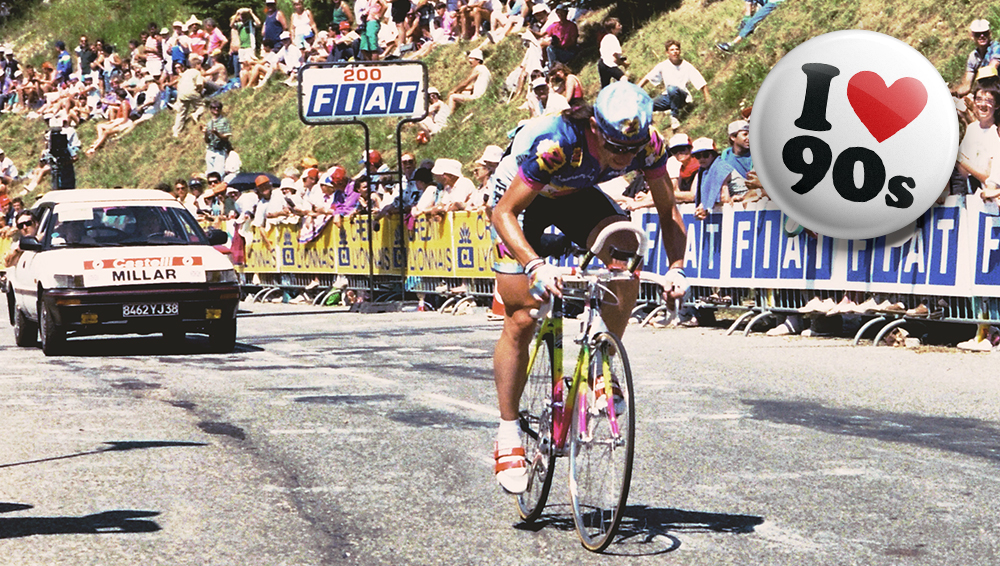
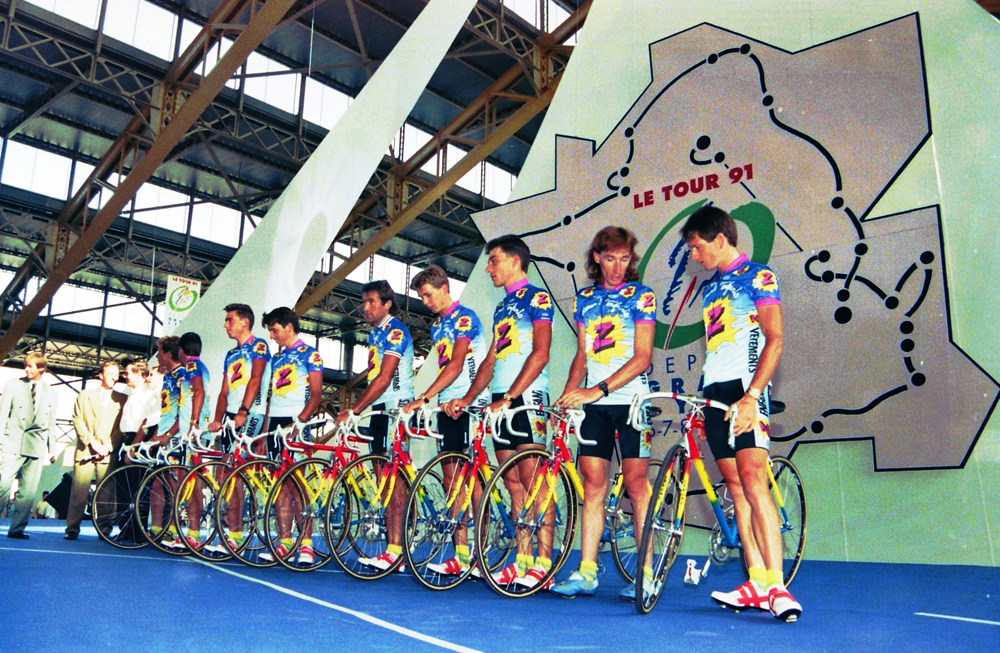
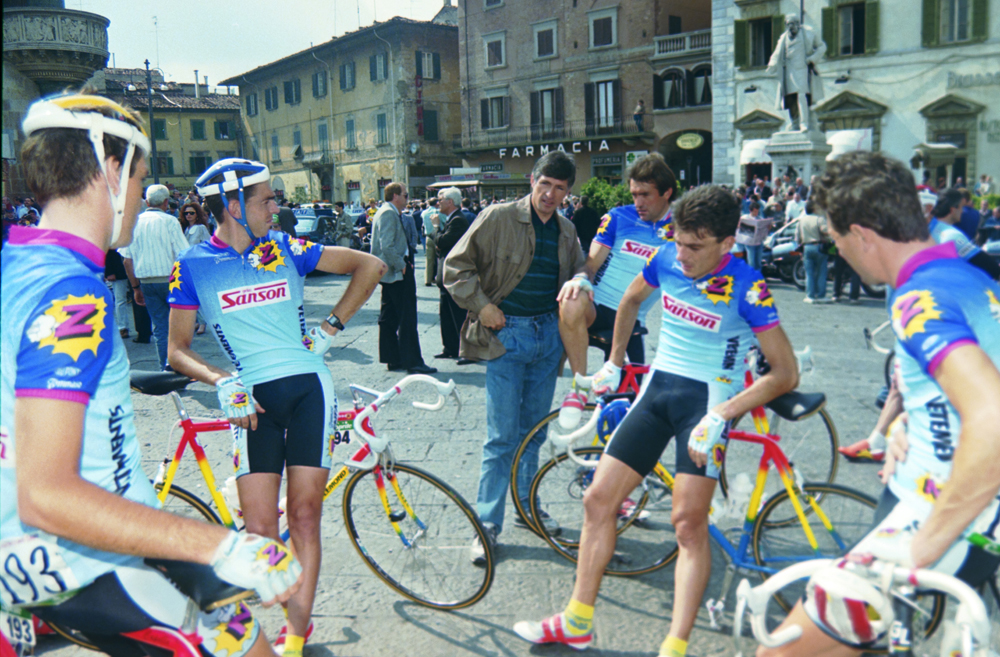
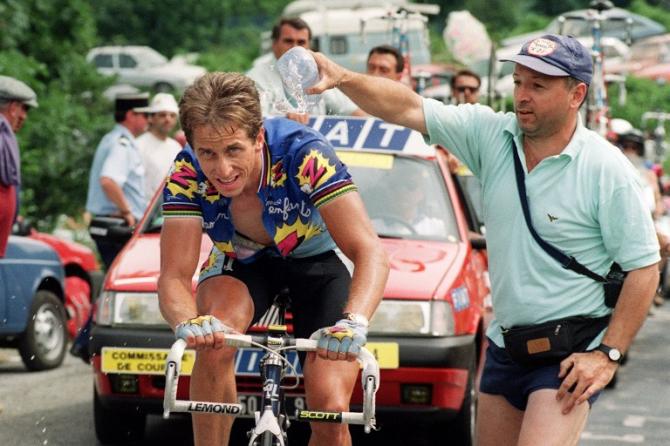
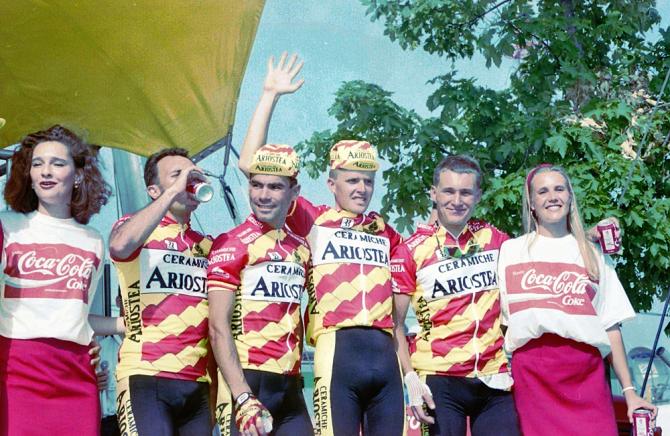
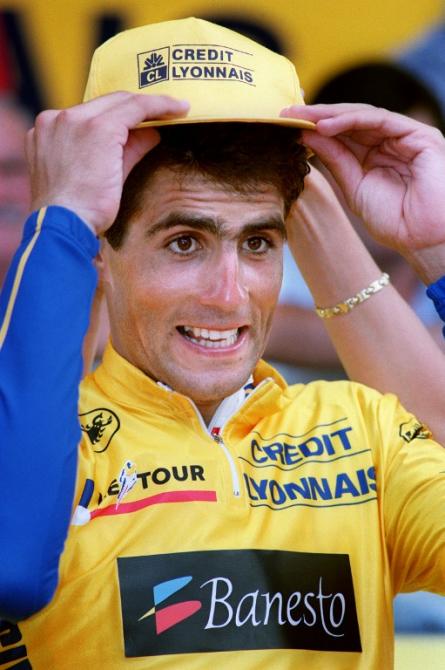
The following feature forms part of our 'I love the 1990s series' and sees Robert Millar recount the 1991 season. It was the year everything changed.
Some seasons begin and you feel immediately under pressure to perform. 1991 was certainly one of those years for me.
At Z things seemed to be going well, as Greg LeMond had won the Tour de France the year before, and the team were cruising along nicely. I should have re-signed when the team manager Roger Legeay made me an offer to extend my contract during 1990 but I'd previously come into information that didn't please. I'd heard that Legeay was paying another rider, Eric Boyer, more than me and given the latter's knowing smile and smarmy nature, that rather grated.
I couldn't be sure but I knew it was the kind of thing Legeay would do and, given I was number two for the GC races after Greg and had the second most UCI points, again after Greg, I didn't expect to be in such a position. Being young, up-and-coming and French were all in Boyer's favour but it didn't feel like I was being shown the respect I deserved, so I decided I'd take my chance on how the season went, leaving Legeay with the chance to make an offer at a later date. From the look Legeay's face, when I told him of my decision, I knew he wouldn't.
Season openings
My season started slowly but I only had to be there or thereabouts in the first stage races. That meant making the front group, being able to see what was happening but there were no expectations on my shoulders to try and win.
The Tour of the Med was it's usual brutal self, with plenty of riding in crosswinds and the stage to Mont Faron.
As a team we won a stage and held the leader's jersey for a day, so it wasn't a complete disaster. However the next one-day races were unsatisfactory and no one from the team was competitive. From there we travelled to the Sicilian week and learned just how far behind we really were. The sprints stages saw Cipollini clean up and the hilly days only saw off the non-climbers when it got seriously hard. To this day, I've no idea how I finished 10th overall because I didn't see the front and never influenced a thing in the race. As for Greg, he stopped after a couple of days and went training instead.
It went from bad to worse at Tirreno-Adriatico with the Italian teams ramping it up another notch with Milan-San Remo in view. I was going backwards and by now Legeay was getting reports on Greg's lack of fitness. Things were already looking difficult for us as a team and it felt like I never really saw the front of races.
At Milan-San Remo, Legeay for some reason thought that Greg could ride himself into form during the race, so we settled on that tactic and waited for the coastal roads. However, there was a split in the bunch and 90 guys rode away before we even reached to the Turchino. Of course we had nobody in the front as we were all hiding in the second half of the bunch. That was our race over.
We weren't alone in missing out but the discomfort felt when climbing into the team cars at the feed station wasn't lessened in anyway. Watching the highlights later on TV and seeing Chiappucci riding like ten men on the flat and then dropping Sorensen on the Poggio was a bit of an eye opener. The front of races seemed to be getting further and further away.
After the embarrassment on Italian soil we recovered by winning GP Rennes and Sarthe. The flat Classics were less successful, however, and the A-Team of Duclos-Lassalle & Co were slaughtered before Argentin made us so 'called climbers' all look stupid in the Ardennes. To finish off the campaign, despite having smallpox, I had to drive up to Amstel and take the start because of some bizarre World Cup points rule.
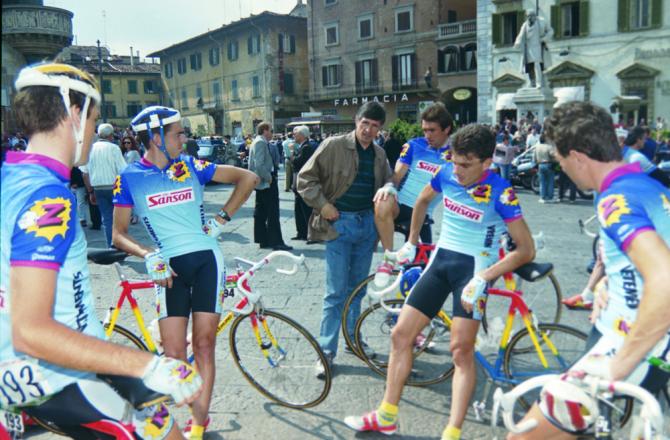
The team had a poor first half of the season in Italy
Tour de France
This period in the season started out well for me and it ended well too. It was just the part in the middle that really sucked. At one race Tony Rominger was untouchable and that was where I first noticed guys were still climbing in their saddles and churning these huge gears. It was 'different' in terms of climbing styles, lets just say that.
All of a sudden I couldn't drop Rominger when we went uphill and he was almost matching me in time trials. He had stepped up a level, for sure, although my compensation from the Tour de Suisse was at best another King of the Mountains jersey. At the training camp we recc'ed some of the Tour stages and then it was almost straight to the Dauphine where I was then out-climbed by Herrera and out time trialled by both Mottet and Rominger.
The Tour itself didn't start well as I was at my minimum weight and already feeling tired. Greg was flying on the flat and his usual nervous self, but that was his normal state at the Tour. He had a day in yellow before Sorensen took over the race lead when Arisotea blasted the team time trial. In hindsight that was probably a good thing as at Z we were under pressure as we had Atle Kvalsvoll hobbled by a crash.
On stage 5 I crashed and I was the first to fall in what quickly became a massive pile up. Miraculously nothing was broken but my neck didn't work properly and I had holes all over my body. Somehow I made it to the finish but I was too injured to be worked on by the physio that night, so the next morning I had to wear a neck brace to hold my head up.
More worryingly, my right hand didn't work and that meant no rear braking and no getting food from my jersey pockets. We got around this by putting my race food in a cut open bidon and changing gear with my left hand. I also rode well away from the other wheels so I had a bit of space to manoeuvre. I ought to have stopped but it was the Tour and you just don't do that sort of thing.
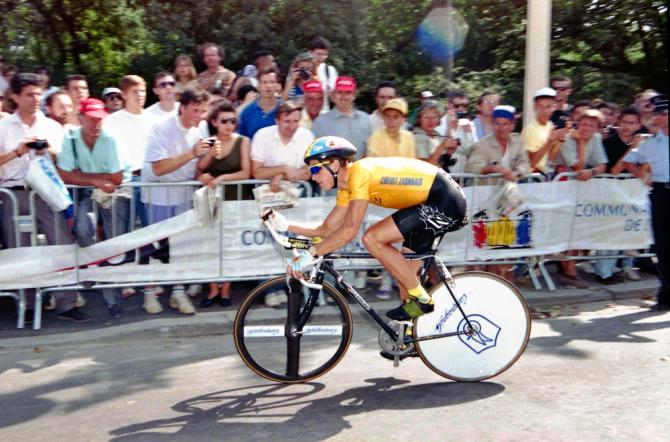
Greg LeMond was looking to defend his Tour crown but despite leading the race for several days he faded in the second half
The time trial a couple of days later was bad as I started without the brace thinking I'd be OK and I wasn't. Legeay kept saying to Kvalsvoll and I to take it easy and recover for the mountains but we couldn't even do that. We were at the maximum everyday just to stay in the race.
Then the PDM fiasco went down and we were reminded that this really was a type of whatever gives you an advantage situation. Legal or not.
When we hit the mountains Greg starting suffering almost straightway. Gianni Bugno and Claudio Chiappucci were seemingly unperturbed by having ridden the Giro and simply left Greg and many of the other climbers in their wake. A serene looking Miguel Indurain and Rominger did the same and when it came to climbing, none of them got out of the saddle unless they really, really had to. They pulled a big gear all day, every day. Something had definitely changed.
The blowback was that Legeay was angry with us and I quite often got the evil stare when I slid out the back unable to do anything of use. The day Atle stopped he looked 20 years older but I was told we couldn't lose any more riders and had to continue.
Then Greg bluffed and attacked at the start of a stage with this all or nothing, do or die move. It turned out it was indeed for nothing as Indurain and Chiappucci rode him down and then simply left him cook in the sun. That was that, game over.
The mountains were horrible but the biggest eye opener for me was the stage to Ales when Argentin rode the last 40km on his own and no-one got near him. It was ridiculous. Teams were pouring to the front and he just rode away. The fact was that there were a whole load of larger riders who had turned into climbers and conversely climbers who had turned into strong men.
Before the 1990s the usual weapons of choice, if you were willing to risk the side effects, were mainly cortisone or corticosteriods, and everything else was detectable. Most things came with an off-day or injury risk too which kind of limited the abuse.
At the Tour, Greg and everyone at Z had gone from riding at the front of the race to being dictated to. We still had our end of Tour party in Paris, but as you can imagine, it wasn't any fun at all.
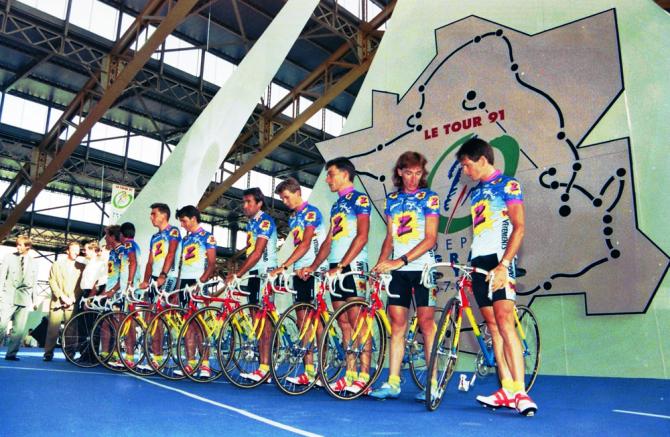
Millar (second from the right) lines up with his teammates at the Tour de France
End of season blues
The season didn't end at the Tour. At San Sebastien, Bugno rode away from everyone, so he clearly wasn't tired from the Giro or the Tour. At the Worlds the Spanish and Italian teams dominated and Bugno won, beating Rooks and Indurain.
On a personal level Lombardy was a sorry affair, and my last race at Z, but in the end we had Cornillet in the front and Kelly's comeback continued. Even though the season was unfulfilling I still enjoyed doing it.
The conclusion for the season was that when racing at national level the team were still reasonably competitive but at the Classics, World Cups and the major stage races things had moved up another two levels.
Hardly anyone climbed out the saddle and you had to pull a bigger gear to stay in touch. Bugno, Indurain and Chiappucci had progressed a massive amount and there were rumours of something new floating through the field.
As for my contract negotiations, Legeay ignored an enquiry from my agent and never got back to us. At the end of the year I moved to TVM. C'est la vie.
Get The Leadout Newsletter
The latest race content, interviews, features, reviews and expert buying guides, direct to your inbox!
Robert Millar was one of the last pure climbers of the Tour de France, winning several stages in the mountain stages and finishing fourth overall in 1984. He is also the only English speaker to have ever won the prestigious polka-dot jersey climber's competition jersey.
Millar retired in 1995 but has continued to follow the sport closely. He was often critical of the media and quickly cuts through the excuses and spin to understand why and how riders win and lose.